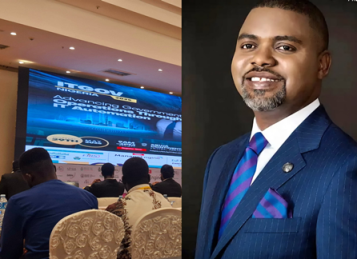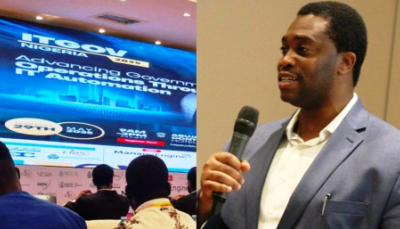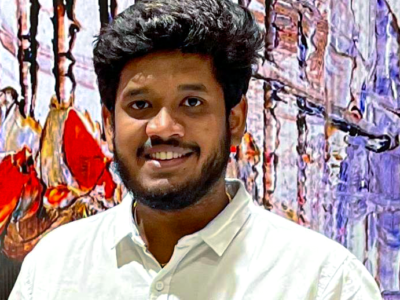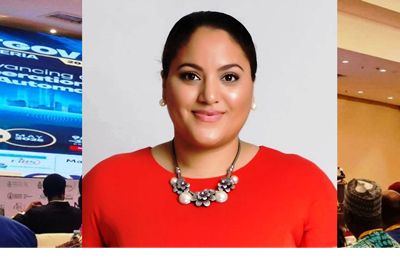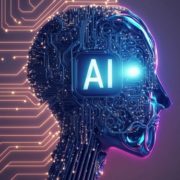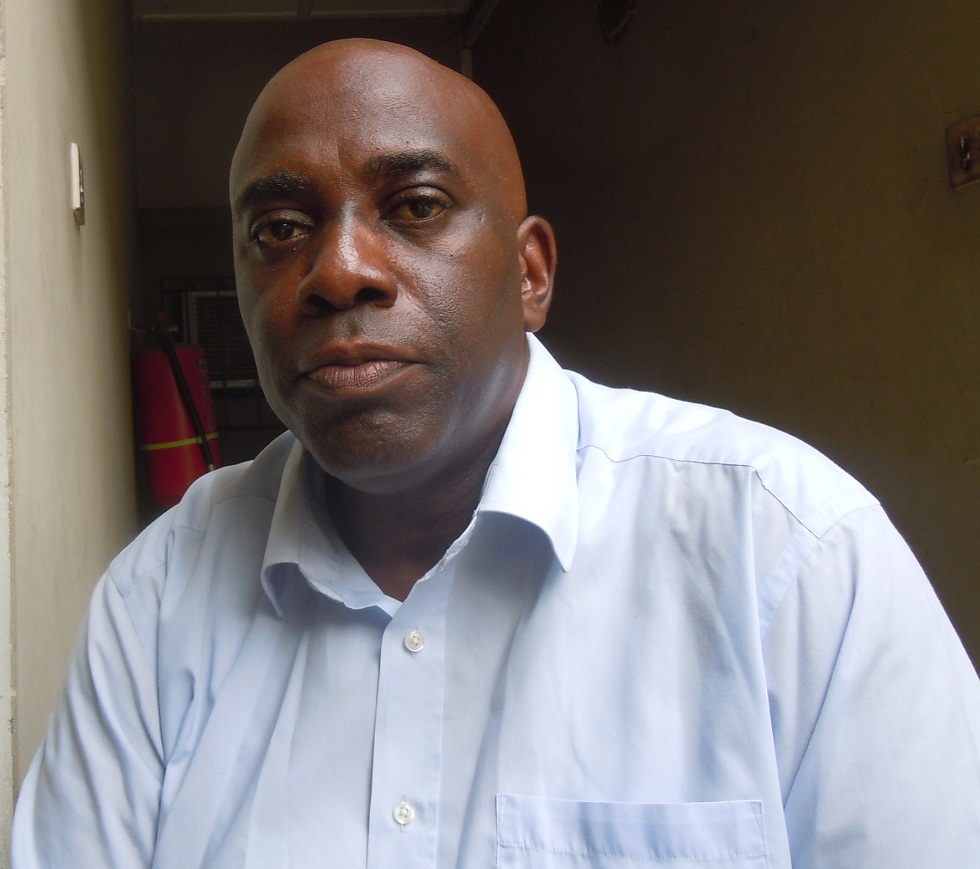 Mr. OWEN IYOHA is the Managing Director of Datasphir Solutions Limited, an ICT firm based in Lagos that provides school management solutions, network solutions and consultancy for education and research institutions. In Lagos, Iyoha tells IT Edge News, MARTIN EKPEKE, that collaboration between institutions will solve internet challenges in Nigeria
Mr. OWEN IYOHA is the Managing Director of Datasphir Solutions Limited, an ICT firm based in Lagos that provides school management solutions, network solutions and consultancy for education and research institutions. In Lagos, Iyoha tells IT Edge News, MARTIN EKPEKE, that collaboration between institutions will solve internet challenges in Nigeria
What is the ICT for girls ‘event all about?
The ICT for girls event is a global event celebrated every third Thursday in April, all over the world. What happens is that different platforms are created around the world to encourage girls to get involved in ICT. The Lagos chapter of the event is being hosted by Eko-konnect, an umbrella body for all the higher educational institutions in the Lagos area. Some of us from Datasphir work as volunteers for Eko-konnect. What we have been able to do is to help coordinate the event; this is the second year that Eko-konnect has hosted the ICT for girls event. We want to make the event more meaningful this year, so rather than just having a one off event; we want to use the event to launch a programme on computer education for young girls. We want to encourage young girls to learn to write code using robots. Robots have a way of engaging young minds. What we will continue to do on behalf of Eko-konnect is to meet with these young girls every three weeks to engage their minds and teach them how to write programmes that will manipulate robots.
Using robots will make young girls to be interested in ICT?
It will make all the young people interested because it is interactive and you see how the programmes are being run in a real scenario. The good thing about the robot is that it allows the girls to do so many things; you can ask the robot questions and it will respond to you. It will make computer programming very interesting rather than just learning the theoretical aspects of programming. We need programmers in this country and we need to develop them while they are very young.
Is the Datasphir’s EduERP software, mobile friendly; bearing in mind that many students and lecturers are using internet enabled phones?
EduERP is a school management solution that Datasphir has developed over the years; the beauty about the technology is that it is free and open source software. What this actually means is that, the software is available and you can download the software from the EduERP website, you can install it and use to start managing your institution right away. We have higher education institutions both abroad and in Nigeria using the solution. We wrote it over a number of years, and decided to make it freely available for whoever is interested in using it. We make money by offering support and consultancy to institutions that still feel they need commercial support for their EduERP deplayment, we also offer a plug-in payment module called EduPAY for school fees payment.
You operate Linux open source software. How do you make money because you are not a charity organisation?
Sometimes it needs some explanations to understand the open source module. When people hear about free and open source software (FOSS), it means free of charge to them. But free in open source doesn’t necessarily mean free of charge, although, it is usually the case that the software is free of charge. What the free means is freedom to distribute and use the software, freedom to give the software to somebody else. You are not limited by licensing restrictions, which is the case with proprietary software. In an environment like ours where technical skills are still lacking, you may have the freedom to use the software and modify the source code, but you will not be able to use it maximally, you still need some support to configure the software for optimal use. that is how we make money from the open source software, we say to the users of the software, it is free to use, but if you want to be more comfortable using it, you need a company that can support you, especially if you are a large university or organisation that may not necessarily have all the required software expertise. So we make money from consultancy and supporting users, but they are not paying any licensing fees. The benefit of the open source software is that the licensing fee is completely removed.
Which other stakeholders are you moving along with to drive the ICT for girls’ agenda?
If you look at those participating today, you will agree with me they are not entirely all secondary school girls, there are a number of undergraduates and lecturers here from the Computer Science, Engineering and Physics departments. You also see people like me from the commercial sector, so there is a mix of people here. We are all stakeholders because for me as an MD of an ICT company, I am also looking for programmers, maybe the next fantastic programmer that will work for my company in seven years time is one of those girls sitting here today. There are a lot of things my company wants to do, but cannot do because the capacity is not there, so we are asking ourselves where will the capacity come from? We can’t just rely on academia to get the capacity because the way academia disposed to ICT education is totally different from the way I as a businessman wish to leverage ICT. I always disseminate ICT education with a business goal in mind while the academia does it with the aim of impacting knowledge. We all need each other to get young people to be ICT enthusiasts who will be vital in the future as ICT will be involved in literally everything we do.
As a stakeholder that provides solutions for schools, how do we get our higher educational institutions outside of Lagos connected?
This is a very good question, and it is one we are very passionate about. It is one of the reasons why Datasphir is so much involved with Eko-konnect. The only way we will be able to tackle the issue of bandwidth availability is by putting resources together and collaborating. The problem we have is that too many organisations wants to do it alone when they can achieve so much more if they learn to work together. Eko-konnect is a consortium of education institutions in the Lagos area; it is a part of the wider Nigerian research and education network called ngREN. ngREN is working to have all federal universities connected together to form the ngREN backbone and working at acquiring internet bandwidth in bulk and make available to institutions at more affordable prices. If you can do that and build a network backbone which is what ngREN and Eko-konnect are working at from different angles, it means you can get a spread of the network across the country and start to acquire bandwidth at a cheaper cost. Eko-konnect is just a regional network cluster of what is being developed at the national level. So the answer to your question is collaboration and cooperation.





